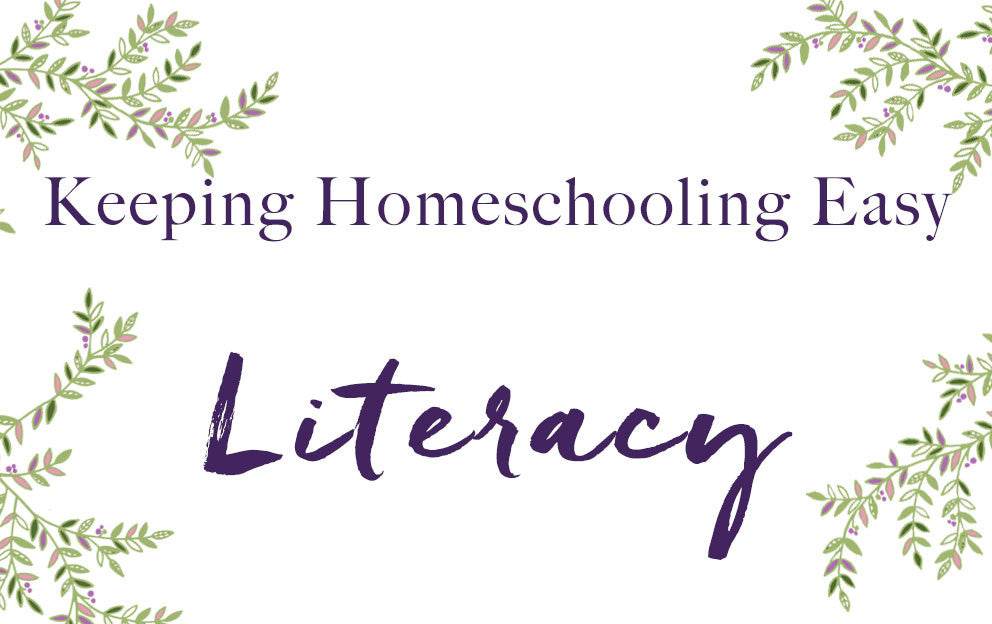Don't worry about keeping up with the exact stage your child is meant to be following at school, try to meet them where they are - see what they're able to do and support them with it, find out what they like and encourage them to develop from there. This may be the moment to give your child more of your attention, but you don't need to spend long on it as that focussed time together will equate to a much longer time they might have spent in class where a teacher has to split their time between a room full of children - another wonderful thing about homeschooling!

Here are some of my favourite keep-it-easy Literacy tips.
For children who would be in early primary school ...
Just keep it super simple - read with them, asking your child to read what they can and supporting them with sounding out words.
For children who are really resistant to reading ...
The key is to find books that are easily accessible and fun for them. My son was really not into reading so I bought him some Garfield books and it proved to be the gateway he needed. From there he started reading books that were a mixture of comics and text (like Diary of a Wimpy Kid, Tom Gates etc) and finally on to 'chapter' books. Last time we went on holiday he took 10 books with him for a week! So don't worry about them reading what you think they should be, or what other kids are on, just try to instil a love of reading and go from there, giving a gentle push and lots of support to get them to move on when you think they're ready.
Taking it step further ...
If you want to add on some tasks to reading time to develop their comprehension you could ask your child to find e.g. 3 words they don't understand and look up the definition, or draw a picture of the story so far, or tell you/write out a brief summary of the story.
Take turns reading - reading aloud is a useful skill for your child and this will encourage them to practice, they will also value spending that time with you.
You could create your own very simple story together. Plan it out with them and give lots of support (if they are very young). They can draw pictures for the story and write out at least a few words on each page. You can then re-read your book together. A nice thing to do would be to print out family pictures and make a story with them. Decorating the books can be really enjoyable for children.

Spelling and Handwriting Help
You could review the books you have beforehand and pick out some words that are used repetitively. Use those words to practice handwriting/spelling with and then ask them to point out the words from each page as you read together.
Use handwriting practice books, you can also print out sheets available online, children can just trace over the top. Even one sheet per day, which takes no more than 5 minutes, develops their skills. Just sit with them the first few times to ensure they understand how the arrows work and that they're holding their pencil correctly.
There are some fun spelling apps. Otherwise, ask them to write a short story and check the spelling on it, ask them to practice rewriting the mis-spelled words a few times each.

We'd love to hear your experiences of homeschooling, whether this is brand new to you or you're a seasoned pro! Join our community of parents, Clan Oscha, to share your stories and learn from others.
Read more in this blog series:
Homeschooling: Adjusting to Becoming a Home Educator and How to Keep it Simple
Top 10 Homeschooling Tips













 https://oschaslings.com
https://oschaslings.com